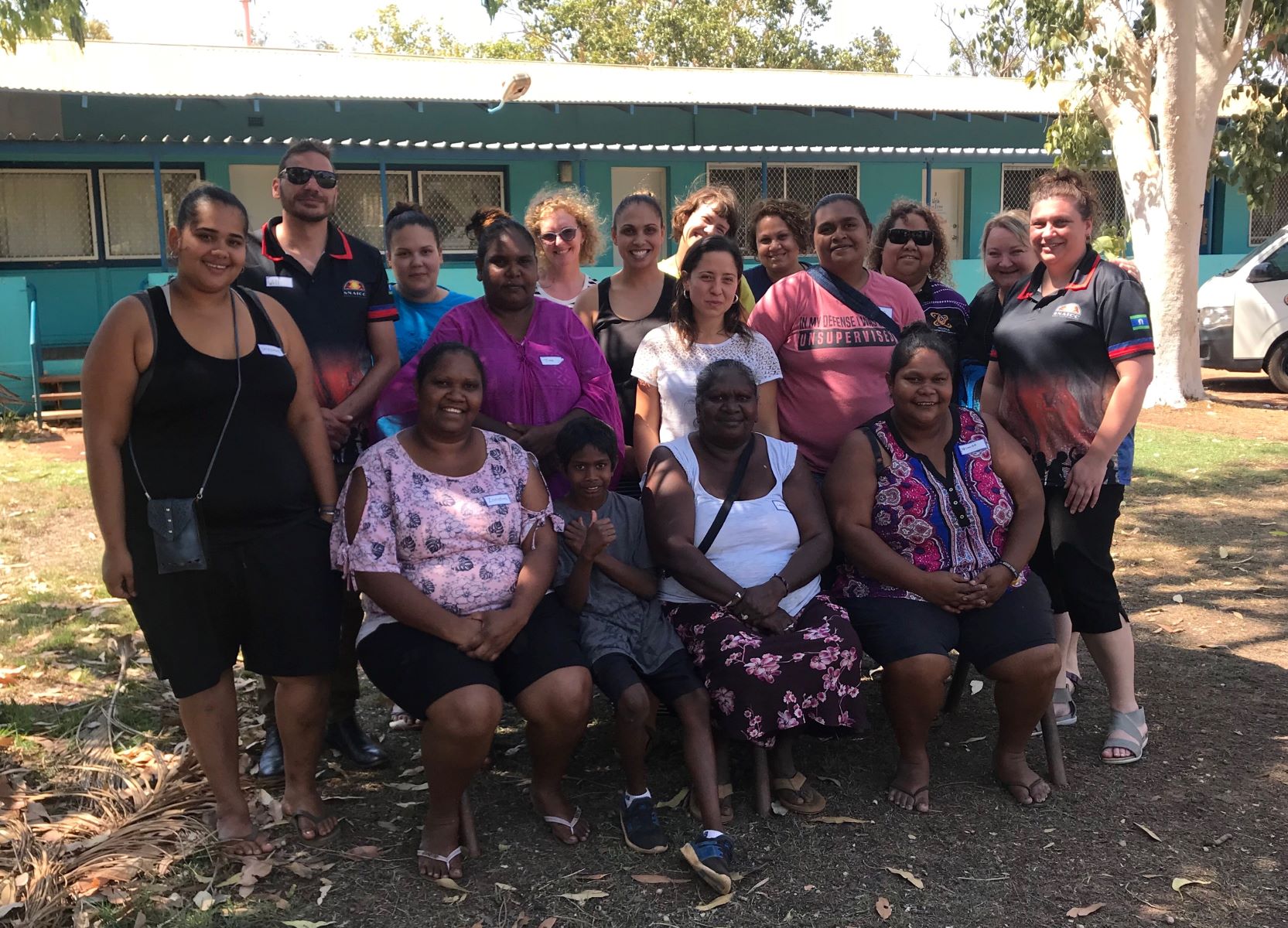‘Too excited to speak'
Monday, February 11, 2019

Aboriginal women and children to benefit from $2.2m grant from the Ian Potter Foundation
The Ian Potter Foundation has awarded just over $2.2M over a five-year period to World Vision Australia (WVA) to support three remote communities develop their own Aboriginal operated and managed early childhood care and development program.
The funding will allow for the expansion of WVA’s early childhood work into three new communities in the Derby region of Western Australia (Looma, Noonkanbah and Jarlmadanhagh Burru).
With six remote centres already in place, this expansion will bring early childhood services to all major communities in the Derby region and support over 500 children aged 0–4 and their parents.
Teresa Hutchins, the programs manager, said she was ‘too excited to speak,’ when she heard that World Vision had been awarded the Ian Potter funding.
“Aboriginal children in these communities are some of the most disadvantaged in the country. It was just the best thing to be able to ring the communities and say: ‘We are on – we can do it!’”
To date, 12 early childhood Community Facilitator positions have been created and enabled previously unemployed women to receive training and employment in their own communities.
“These women were mothers at home with their kids who didn’t have any qualifications or confidence to find employment. Now they are attending training events, talking about early childhood issues and getting ready to present at a national conference,” Ms Hutchins said.
“The new funding will allow us to employ more local women and provide them with the same training and learning opportunities, as well as supporting them to develop services in their own communities.
“These three new communities are passionate about improving the wellbeing of their youngest children but had not been able to secure support from Government or anyone else to make their dreams a reality,” she said.
Indigenous children living in remote areas are some of the most educationally disadvantaged children in Australia. Without access to parenting support and basic early childhood services like playgroups and school transition programs available in the cities, many Indigenous children can find themselves struggling by the time they commence their formal education.
“If we don’t set children up for success before they start school it is really hard for them to make up for this once they are at school. Often children drop out before the end of middle school, leading to a life of unemployment and poor health and social wellbeing,” Ms Hutchins continued.
“Youth suicide in Aboriginal communities is among the highest in the world, starting young, giving children the skills, confidence and supporting the development of a strong cultural identity, gives them the resilience to overcome challenges throughout their childhood and well into adulthood.”
Mr Charles Goode AC, Chair of The Ian Potter Foundation said, ‘There is a clear need for early childhood services for these remote communities. The Ian Potter Foundation is pleased to support a proven program that is community led and operated and managed by local Indigenous people with support from World Vision Australia.
“World Vision Australia has a policy of exiting the community once local people and organisations are trained to run the program independently. This should provide an on-going sustainable model that leads to improved outcomes for all involved.”
As well as allowing World Vision to train and employ more local Aboriginal early childhood community development facilitators, the grant will also fund the establishment of early childhood reference groups, responsible for championing and driving the early childhood agendas in their communities, as well as supported playgroups for parents and caregivers and their young children.
The program will also develop a local early childhood workforce through a broader community-based mix of informal and formal early childhood education and training and join with the six other communities in the network to engage in regional forums and learning events.
WVA has already successfully implemented this regional model of community-led, Aboriginal-operated and managed early childhood service in another two locations: the Warlpiri region of the Northern Territory and the Pilbara region in WA.
According to World Vision Australia CEO, Claire Rogers, many people tend to associate World Vision with international aid and development, however the organisation is equally committed to its work with Aboriginal communities.
“World Vision Australia is living out our mission to reach and support the world’s most vulnerable children some of whom are within Aboriginal communities in our country.”
For further information or to arrange interviews please contact Angus Smith on 0409 571 049 or angus.smith@worldvision.com.au
Media Releases
Back to all Results